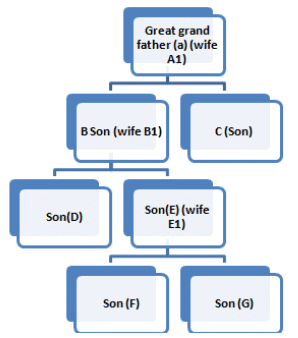NCERT Solutions for Class 6 History - New Empires and Kingdoms
Let’s Recall
Q1. State whether true or false:
(a) Harishena composed a prashasti in praise of Gautamiputra Shri Satakarni.
Ans: False
Harishena, who was a poet and a minister at the court of Samudragupta, composed a prashasti that praised and honored Samudragupta, not Gautamiputra Shri Satakarni.
(b) The rulers of Aryavarta brought tribute for Samudragupta.
Ans: False
The rulers of Assam, coastal Bengal, Nepal, and a number of gana sanghas in the northwest brought tribute for Samudragupta. They followed his orders, and attended his court.
(c) There were twelve rulers in Dakshinapatha.
Ans: True
There were twelve ruler in Dakshinapatha. They surrendered to Samudragupta after being defeated and he then allowed them to rule again.
(d) Taxila and Madurai were important centres under the control of the Gupta rulers.
Ans: False
Prayaga (the old name for Allahabad), Ujjain and Patliputra (Patna) were important centres of the Gupta rulers.
(e) Aihole was the capital of the Pallavas.
Ans: False
Aihole, the capital of the Chalukyas, was an important trading centre. It developed as a religious centre, with a number of temples.
(f) Local assemblies functioned for several centuries in south India.
Ans: True
The inscriptions of the Pallavas mention a number of local assemblies. These included the sabha, which was an assembly of brahmin landowners. This assembly functioned through subcommittees, which looked after irrigation, agricultural operations, making roads, local temples, etc.
Q2. Mention three authors who wrote about Harshavardhana.
Ans: Three authors who wrote about Harshavardhanan were
- Banabhatta
- Xuan Zang
- Ravikirti.
Q3. What changes do you find in the army at this time?
Ans: We find the following changes in the army at this time:
- Like earlier rulers, some of these kings maintained a well-organised army, with elephants, chariots, cavalry and foot soldiers.
- Besides, there were military leaders who provided the king with troops whenever they needed them.
- They were not paid regular salaries.
- Instead, some of them received grants of land.
- They collected revenue from the land and used this to maintain soldiers and horses, and provide equipment for warfare.
Q4. What were the new administrative arrangements during this period?
Ans: The new administrative arrangements during this period were:
- Some important administrative posts were now hereditary means that sons succeeded fathers to these posts.
- Sometimes, one person held many offices. For instance, besides being a maha-danda-nayaka, Harishena was a kumar-amatya, meaning an important minister, and a sandhi-vigrahika, meaning a minister of war and peace.
Let's Discuss
Q5. What do you think Arvind would have to do if he was acting as Samudragupta?
Ans: If Aravind was acting as Samudragupta he would have to:
- Establish an efficient administration and a strong government.
- Hear complaints and decide cases.
- Lead the army and successfully plan his campaign in almost all parts of India.
- Look after the welfare of the people.
- He would also write poems and would play veena.
Q6. Do you think ordinary people would have read and understood the prashastis? Give reasons for your answer.
Ans: No, the ordinary people would not understand the Prashastis because it was written in Sanskrit language, the language of the learned people.
Let's Do
Q7. If you had to make a genealogy for yourself, who are the people you would include in it? How many generations would you like to show? Make a chart and fill it.
Ans: If I have to make a genealogy of myself. I will include 4 generations (counting myself) The names are given in Alphabets. (a) I am (g) I am a small boy.
(a) I am (g) I am a small boy.
(b) My father is (E) and mother (E1).
(c) My grandfather (B) and grandmother (B1).
(d) My great grandfather is (a) and My great grandmother is (A1).
Q8. How do you think wars affect the lives of ordinary people today?
Ans: In the present times, the wars will adversely affect the lives of the people
Example:
(i) The economy of the country is disturbed and prices of the essential commodities also start booming.
(ii) There can be large scale destruction, caused due to air warfare.
(iii) Chemical warfare and use of nuclear bombs can affect not only the present generation but also many generations to come. It may also lead to environmental degradation.
|
65 videos|386 docs|80 tests
|
FAQs on NCERT Solutions for Class 6 History - New Empires and Kingdoms
| 1. What were the major empires and kingdoms that emerged during the post-Gupta period? |  |
| 2. What were the reasons for the decline of the Guptas and the rise of new empires and kingdoms? |  |
| 3. What were the major achievements of the Cholas? |  |
| 4. Who were the Rajputs and what was their contribution to Indian history? |  |
| 5. What was the impact of the new empires and kingdoms on Indian society and culture? |  |

|
Explore Courses for Class 6 exam
|

|


















